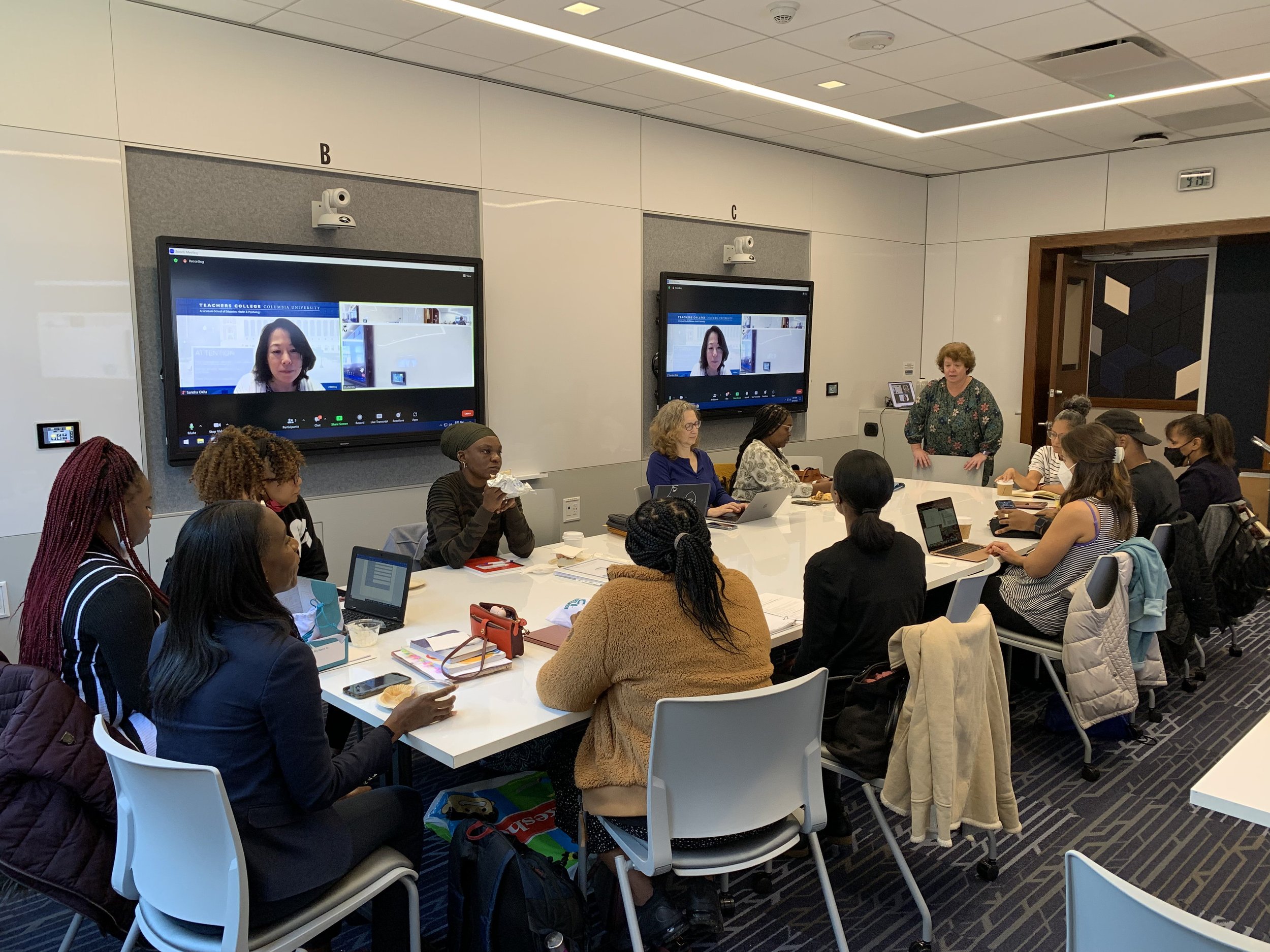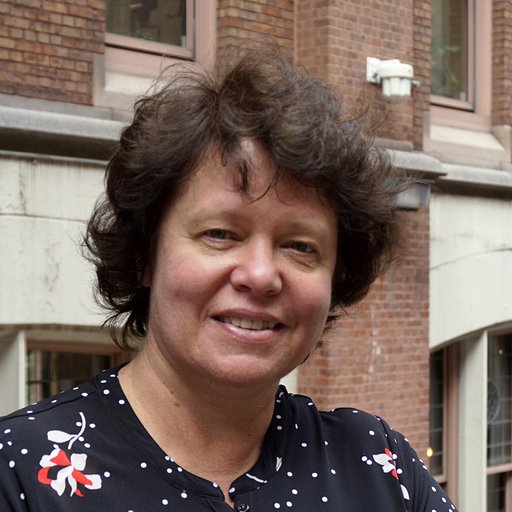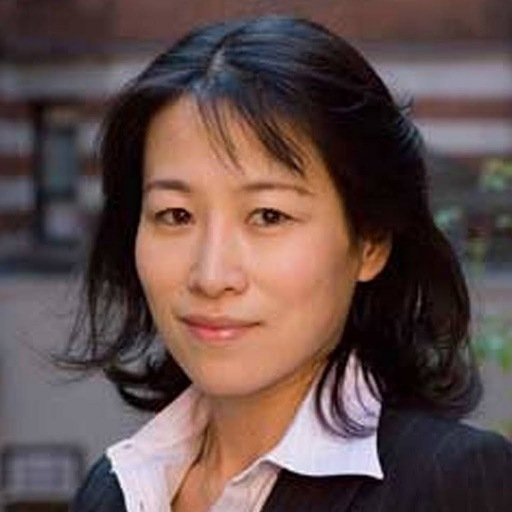
Team
Leadership Team
-
Dr. Irina Lyublinskaya is a Professor of Mathematics and Education at Teachers College, Columbia University. Her research interests are topics of integrating technology into mathematics and science education, pre-service and in-service PD of STEM teachers, and curriculum development. A physicist by training and mathematics educator with 30+ years of experience, she has extensive expertise in helping K-12 teachers and post-secondary instructors make connections between various STEM disciplines to support student mathematics learning. She has developed various curricula in mathematics and science for all levels from elementary school to college. Relevant curricula include GeoGebra labs for elementary school geometry and Crime Scene Investigation with Sketchpad. She also worked extensively with elementary school pre- and in-service teachers as an in-class coach, mentor, and PD provider.
-
Dr. Sandra Okita is Professor of Educational Technology and Human Robot Interaction at Teachers College, Columbia University. Her work uses robotics and robotic systems as a threshold to learning, instruction, and assessment within the K-12 classroom environment and beyond. Okita comes from a learning science, cognitive science, educational technology background from Stanford University, and human-computer interaction background from Keio University in Japan. Much of Okita’s work involves examining how robots and digital games can test theories about conditions for learning and facilitate collaborative learning. Okita’s interdisciplinary work finds publications in both educational and computer science fields (Journal of the Learning Sciences, British Journal of Educational Technology, ACM Transactions on Interactive Intelligent Systems). Okita has had numerous federal and industrial grants from the NSF, Honda Research Institute, Google, Omron, and Sony.
-
Dr. Erica Walker is Clifford Brewster Upton Professor of Mathematics Education at Teachers College, Columbia University. Dr. Walker, a former public high school mathematics teacher who earned her doctorate from Harvard University in administration, planning and social policy, is an authority on the social and cultural factors and educational policies and practices that facilitate mathematics engagement, learning and performance, especially for underserved students. As Director of the Institute of Urban and Minority Education (IUME) she will provide expertise to the team and teachers on the issues of culturally relevant pedagogy related to STEM. Current NSF projects for which Dr. Walker is PI or co-PI are Bridging Communities with Student STEM Stories: Culturally-Responsive Strategies for Motivating STEM Engagement in Diversifying Public Schools (ITEST, 2018-2021) and Storytelling for Mathematics Learning and Engagement (DRK-12, 2020-2023).
-
Karen Pierre-Charles Byrd has over 20 years of experience in public education, with a focus on narrowing the educational achievement gap in urban schools. She holds a bachelor's degree in Elementary Education from Florida International University and a master's in Curriculum and Instruction from Teachers College, Columbia University. Karen has worked in various roles including Teacher Leader, Mentor, and Dean of Students. She is currently a Staff Developer at P.S. 59 in Brooklyn, NY, where she has served for 17 years. Her goal is to leverage her experience to foster educational reform and close the achievement gap.
-
Laura Hart is CEO of Vision Education & Media, an Educational Technology Company in New York City. Ms. Hart worked with the late Dr. Seymour Papert, founder of the Artificial Intelligence Lab at MIT, for over 30 years running retreats for teachers focusing on education, learning and technology. Hart has a M.Ed. from the Harvard Graduate School of Education. Hart is the former director of technology for both The Buckley School and The Little Red School House. For 13 years, she ran “The Stonington Retreat” a PD retreat started with Dr. Papert in 1989. Her publications include: Cityscapes in LOGO, 1993; Constructivism meets the Job Corps, 1997; Knowing Seymour, International Journal of Child-Computer Interaction, 2017. The original user’s manual for the coding language Scratch was written in collaboration with Ms. Hart and Robofun/VEM staff in 2007.
-
Dr. Ashley Lewis Presser, Research Scientist, will oversee the external evaluation of the proposed project, including advising the project team on research design and analysis. Dr. Lewis Presser brings more than 20 years of experience conducting educational and developmental research. She has considerable experience researching early childhood, mathematics, computational thinking, and STEM interventions, including the use of design experiments, quasi-experiments, and randomized controlled trials. Dr. Lewis Presser has experience as a PI on NSF funded projects, and evaluations of other NSF and Department of Education projects.
Graduate Research Assistant Team
-
Marcus Cheung, a doctoral student at Teachers College, Columbia University, focuses on Instructional Technology and Media. His research explores how technologies (e.g. AI, crypto, Web3, and social media) enhance comprehension, reaction, and processing of information related to complex topics - examining information literacy and critical media literacy. With an MA in the same field, his research footprint extends to Gizmo Edtech Lab, Human-Centered AI and Learning Lab, and Media and Social Change Lab. His proficiency in instructional design is evident in online courses at Columbia University, Udemy, legal firms and other distinguished educational institutions. His partnerships with Google, TikTok, and various NFT projects have led to advancements in the user experience of their products
-
Chamarra A. O. Coward is a doctoral student in Mathematics Education at Teachers College, Columbia University with research interests in culturally relevant pedagogy and student engagement. She is a professionally certified High School Mathematics educator and Math for America Master Teacher Emeritus. She has a unique ability to instruct mathematics using a wide variety of teaching aids and motivational strategies, engaging students in active learning with the use of technology. Chamarra demonstrates patience and establishes a positive rapport with students and staff members, cultivating an encouraging, safe, and inviting classroom environment. Passionate about mathematics and her community, Chamarra creates and implements student-centered problem-based tasks, providing students with individualized and personal assistance where necessary.








